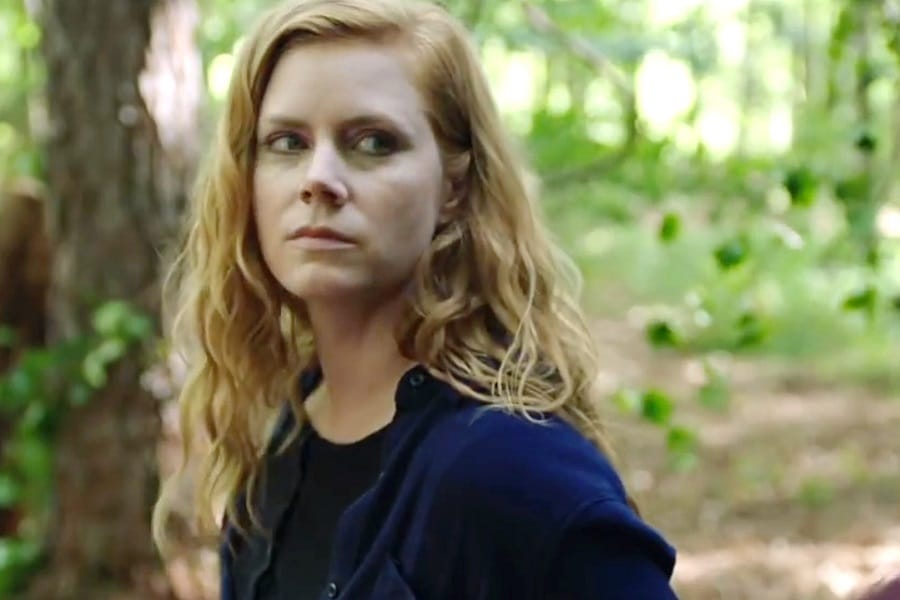
Psychological Suspense
Psychological suspense stands as a genre that mesmerizes by delving deep into the labyrinthine corridors of the human mind. This genre spins tales, not just about crimes, mysteries, or shady characters, but also about the intricate stories individuals tell themselves about their own personas. Inside this captivating realm, everyone is an enigma, and unfolding the layers leads to revelations that often blur the line between reality and illusion.
Take a leisurely stroll down the aisles of a bookstore, the corners holding whispers of stories brimming with mind-twisting plots, or sit snug in a warm corner with a TV remote in hand, ready to navigate the world of psychological suspense that’s become a staple of modern storytelling. It’s about embarking on an expedition that ventures deep into the crevices of the psyche, where truths are elusive and perceptions are ever-changing.
Now, to embark on this journey, a good starting point is the intricate world created by Alfred Hitchcock, a master craftsman of psychological suspense, who had an uncanny knack for portraying the often convoluted narratives people construct about themselves. His film “Vertigo” presents a dizzying spiral of identity, deception, and obsession, leaving audiences pondering about the genuine versus the facades people adorn. Likewise, in “Rear Window,” Hitchcock illustrates the perils of voyeurism and the concoction of narratives based on fragmented visuals, a stark reminder of the partial stories woven in mind based on limited perspectives.
Transitioning from the moving pictures to the rich textures of literary landscapes, the works of Patricia Highsmith comes to the fore. Her narratives are embedded in the normalcy of everyday life, but with an underlying current of suspense that is almost palpable. Through “The Talented Mr. Ripley,” Highsmith explores the dark alleys of identity theft and the extent to which an individual goes to weave a web of deceit, where the line between the impersonator and the impersonated gets irretrievably blurred. In these stories, the suspense builds not from external circumstances, but from the complex labyrinth of the characters’ minds, their distorted perceptions, and the unending quest for identity and belonging.
Moving along, one cannot overlook the spellbinding world created by Gillian Flynn in her novel “Sharp Objects.” Unlike her more famous work “Gone Girl,” which also dabbles extensively in the psychological suspense genre, “Sharp Objects” unravels the dark secrets lying in the heart of a seemingly serene town and a troubled journalist who finds herself entwined in a web of deceit, manipulation, and harrowing memories. The chilling narrative pries open the Pandora’s box of self-harm and familial dysfunction, narrating a tale where the protagonist is constantly grappling with the horrifying stories she tells herself about her own existence. The TV adaptation of this novel, brought to life by Jean-Marc Vallée, takes viewers on a visually stunning and psychologically jarring journey, maintaining a tight grip on the suspense till the very end.
While the world of books and films provides a rich tapestry of stories that delve deep into the psychological intricacies of the human mind, the television series universe is not far behind. Netflix’s original series “Mindhunter” brilliantly portrays the birth of criminal profiling and the ensuing journey into the minds of serial killers. Through the meticulous and sometimes unnerving process of understanding and cataloging the behavioral patterns of criminals, the series also portrays the psychological toll it takes on the profilers themselves. The stories they tell themselves to cope with the darkness they encounter and the changing dynamics of their personal narratives add a rich layer of complexity to the series.
Parallelly, HBO’s “Big Little Lies” offers a gripping portrayal of the lives of a group of women ensnared in a web of secrets, betrayals, and violence. The series beautifully captures the psychological landscape of each character, unveiling the stories they narrate to themselves to reconcile with their realities, laden with trauma, guilt, and societal expectations. The psychological suspense builds up with every episode, leading to a crescendo where the line between victim and perpetrator becomes ominously blurred.
The beauty of psychological suspense lies in its ability to delve deep into the human psyche, to explore the dark, twisted corridors where fears reside and secrets are stowed away. It portrays the inner turmoil, the battle between the real and the imagined, and the fragile line that separates them. The narratives spun within the minds of characters often mirror the complex web of stories individuals spin about themselves in real life, reflecting the multifaceted nature of human existence.
Moreover, these narratives offer a cathartic release, an exploration into the depths of the human mind, where the battle between darkness and light, reality and illusion plays out in infinite variations. It’s a journey into the complex world of human emotions, where the boundary between the narrator and the listener, the observer and the observed, gets blurred, leading to a rich tapestry of stories that resonate on a deeper, more primal level.
To traverse the realms of psychological suspense is to embark on a journey that promises not just thrills and chills but also a deeper understanding of the human condition. It’s a glimpse into the mirrors held up by characters, reflecting the convoluted narratives etched in their minds, narratives that often resonate with the stories individuals tell themselves about their own lives.
It’s in these narratives, woven with intricate details and complex characters, where the essence of psychological suspense finds its true calling. Whether flipping through the pages of a nail-biting thriller or glued to the screen witnessing a plot unfold with bated breath, one finds oneself not merely a spectator but a participant in a grand narrative, a narrative that questions, provokes, and tantalizes the mind, leaving an indelible imprint long after the final page is turned or the screen fades to black.
Thus, the genre of psychological suspense stands not merely as a beacon of entertainment but as a testament to the intricate, mesmerizing, and sometimes harrowing stories individuals weave about themselves. A reminder that within the realms of the mind, stories are ever-evolving, ever-changing entities, offering glimpses into the enigma that is the human psyche. Through the lens of psychological suspense, the complex dance of light and shadow within the human mind finds a canvas, painting pictures that are as captivating as they are unsettling, yet always, unerringly human.
More Psychological Thriller Features
Labyrinth of the mind
Intricate mind games and compelling narratives
Psychological Manipulation in Thrillers
Memory, Identity, and Madness
The Dark Side of the Mind
The darkest corners of the mind are not just settings but essential characters



